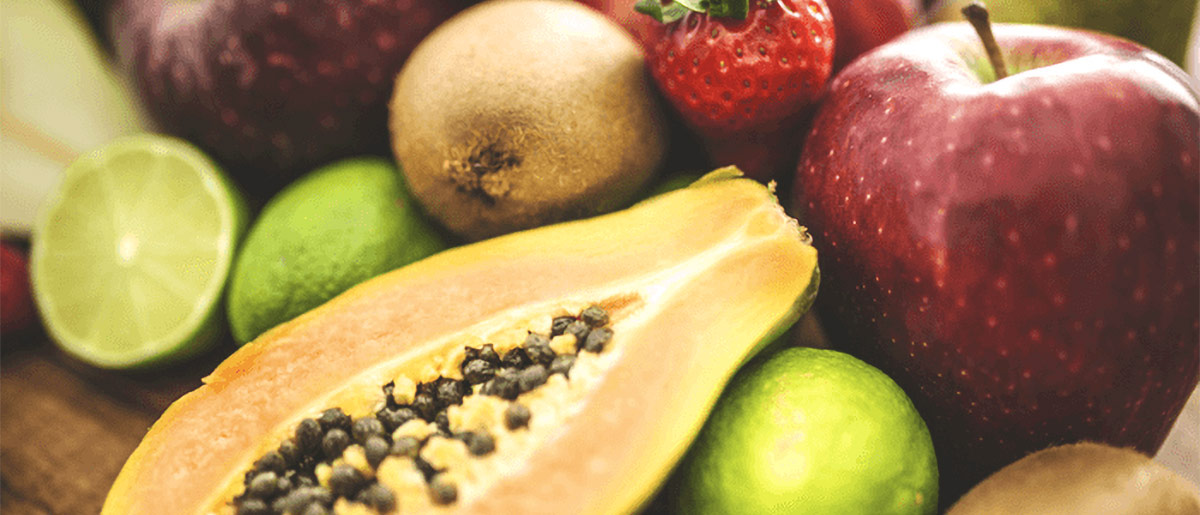HOW MUCH FIBER PER DAY SHOULD YOU EAT?

Decades-long research has shown that high-fibre diets offer a multitude of health benefits. Although fibre is best known for promoting regularity and digestive health, it provides many other health benefits, depending on the type of fibre you eat. But how much fibre do you need per day?
Keep reading to discover the daily recommended fibre intake, how to know if you are getting enough fibre each day, and ways to get more fibre in your diet.
HOW MUCH FIBER SHOULD I EAT EVERY DAY?
According to Nutrition Australia, it is recommended that Australian adult males and females need 30g and 25g of dietary fibre daily, respectively¹, but only 28% of adult Australians met this daily dietary fibre adequate intake².
If you think you’re not getting enough fibre from your diet, start by increasing the plant-based foods in your diet. Most plant foods contain varying amounts of fibre. Some of the best sources are vegetables, fruits, legumes, whole grains, nuts, and seeds. You can tap into the many health benefits of high-fibre diets by upping how much of fibre-rich foods you eat regularly.
3 SIGNS YOU’RE NOT EATING ENOUGH FIBER
If you’re not getting enough fibre from your food, your body will signal to let you know. These are some of the most common signs you should look out for.
YOU FEEL HUNGRY SOON AFTER EATING.
Foods that are low in fibre tend to leave you reaching for a snack soon after finishing your meal. If you constantly find yourself hungry, log your diet habits for a week or so and determine the fibre content of your meals.
When the bulk of your diet consists of foods rich in dietary fibre, you tend to feel full longer. If eating more fibre-rich, plant-based foods is still not enough, fibre supplementation may be a great way to up your intake and keep you full between meals.
Both types of dietary fibre - soluble and insoluble - play a role in ensuring food moves through your digestive tract smoothly. Soluble fibre draws in water and can help with bowel movements. Insoluble fibre helps by adding bulk to your stool and moving food through your digestive tract. Although it's important to have both types of fibre in your diet, you don’t have to worry much, because eating a wide variety of plant-based foods will help you get plenty of each.
YOU FEEL SLUGGISH AND WEIGHED DOWN.
Your body needs carbohydrates for energy, and low-carb, low-fibre diets can leave you feeling sluggish and weighed down. Be sure to include ample amounts of dietary fibre—a non-digestible form of carbohydrate—in your diet to feel more energized throughout the day.
YOU EXPERIENCE OCCASIONAL CONSTIPATION.
If you struggle with not having regular bowel movements or having difficulty passing stools, you are certainly not alone. Constipation affects up to 30 percent of the Australian population.³ Although it is one of the tell-tale signs that you may not be consuming enough fibre-rich foods, it's best to contact your healthcare provider if you have any questions or concerns.
HOW DO I GET MORE FIBRE IN MY DIET?
Meeting the recommended daily fibre intake does not have to be complicated. You don't need a complete diet overhaul; a few simple changes may be enough to increase the amount of fibre you eat each day. Keep reading for simple ways to get more fibre in your diet.
ADD FRUITS AND VEGETABLES TO EVERY MEAL
Regardless of what your current diet looks like, commit to upping your fruit and vegetable intake with your breakfast, lunch, snacks, and dinner. So, for instance, if your typical breakfast is a bowl of cereal, add a cup of rolled oats to get an additional 9 grams of fibre¹.
For snack, try broccoli and a banana. A cup of broccoli provides about 4 grams of fibre, and a banana about another 2 grams of fibre¹. As you can see, increasing your fibre consumption is not difficult or time-consuming. You can chop the fruits and veggies in few minutes and eat them on the go.
TAKE A FIBER SUPPLEMENT
Eating more plant-based foods is a great way to get more fibre plus the other nutrients your body needs. But it’s challenging to get enough to reach the 25-30g needed daily. So, as you add more fruits and vegetables, nuts, and seeds to your diet, supplement with Metamucil made with plant-based psyllium fibre. Metamucil Powder provides 3.4 grams of fibre per serving, about 10 percent of your recommended daily fibre intake. Add 1.5 level teaspoons of Metamucil Powder to a glass of water and start your day on the right note by increasing your fibre intake.
There are so many ways to up your fibre intake, many of which require little to no time commitment. Whether you start by adding a piece of fruit to your meals, have a glass of Metamucil, you will be sure to feel the benefits of getting more fibre in your diet.


